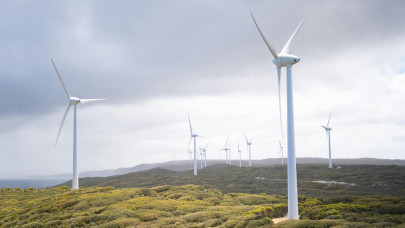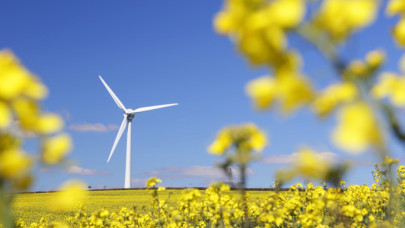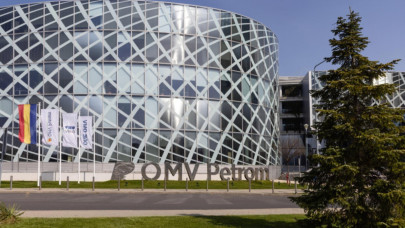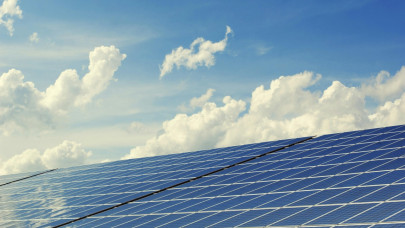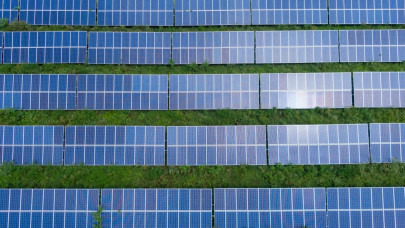How does Rezolv Energy integrate ESG factors into its overall business strategy? Are there specific ESG goals or targets the company is working towards?
From the outset, Rezolv has had the ambition to set the standard for the responsible development of renewable energy projects in South Eastern Europe showcasing best practice and sustainability leadership and catalysing a movement towards a more sustainable future across the region. This approach is also in alignment with Actis, Rezolv's shareholder, who is committed to developing sustainable infrastructure.
Our sustainability strategy builds on industry best practice and aligns with international standards, including the Equator Principles and the International Finance Corporation (IFC)'s Performance Standards on Environmental and Social Sustainability. These standards are the most robust in the industry and, in many areas, go well beyond the requirements set down by Romanian law.
One of the reasons this has been important for the business is because large-scale renewable energy projects require a significant amount of financing – which requires a robust ESG strategy. For example, in June, we secured finance loan facilities of up to €291 million from a consortium of eight international lending partners, regional commercial lenders and local banks to support the Phase 1 construction of the ‘VIFOR' wind farm, our 461MW project in Buzău County. Organisations like this seek to finance projects that are in alignment with their environmental and social performance standards. The same has been true for the companies with which we have already signed Power Purchase Agreements (PPAs) – which includes T-Mobile Czech Republic, Slovak Telekom and Bekaert.
On a project level, each one has its own Environmental and Social Management Plan with a range of sustainability objectives that are specific to that site and local area. We also have various overarching goals that all of our projects have to meet. For example, ensuring our projects are not having a negative impact on nature.
How do you see the Romanian renewable energy landscape evolving in the coming years? What are the key trends or technologies that Rezolv Energy is following or investing in?
We are in the middle of a renewable energy boom in Romania. Last year, the percentage of electricity generated from fossil fuels dropped below 30% for the first time, with overall renewables capacity increasing to just over 50% – the highest level it has ever been.
Over the next few years, many more gigawatts of renewable power will be coming onstream – including more than 2GW from Rezolv's three wind and solar projects. I am very proud that we will be making such a significant contribution to the decarbonisation of Romania's electricity system and the security of its energy supply.
The potential is there for Romania to move even faster, though. To achieve that, one of the most impactful things the Romanian government could do is to start the process of applying to join the Association of Issuing Bodies (AIB), an international non-profit association that standardised energy certification for all energy carriers in Europe: the European Energy Certificate System - "EECS".
This is all about Guarantees of Origin (GOs) - electronic certificates that guarantee the origin of electricity- which prove to a final customer that the energy they are buying was produced from renewable sources. GOs are a critical component of corporate Power Purchase Agreements (PPAs), a long-term contract between an electricity generator and a customer, usually a utility, government or company.
Without them, PPA buyers cannot verify the type of electricity they are using and are unable to meet strict carbon accounting requirements, or prove compliance with RE100 (a global initiative organised by The Climate Group, bringing together the world's most influential businesses committed to 100% renewable electricity) and SBTi which require that companies set targets based on emission reductions through direct action within their own boundaries or their value chains.
Crucially, for the multinational firms that are currently driving most of the demand for PPAs, GOs also need to be transferrable between EU member states – and that can only be done through membership of the AIB. The fact that Romania is not a member is holding back the commercial and industrial power market, and therefore the whole of the renewable energy industry.
In terms of the technologies we are investing in, for large-scale wind and solar projects, the key priority is delivering the largest possible impact. For this reason, we recently selected Vestas as the engineering, procurement and construction partner for the first phase of the VIFOR wind farm. Phase 1 will involve the installation of 30 EnVentus Vestas V162 wind turbines. Once installed, they will have the largest power output of any turbines in Romania – each one will have a capacity of 6.4 MW – which means that we can maximise the volume of clean power produced. Delivering maximum impact will continue to be our key motivation.
What are Rezolv Energy's long-term vision and goals for ESG and sustainability?
We are very conscious that it is not enough for us to deliver major renewable energy projects which contribute to a more sustainable future. We also need to limit emissions from our own operations and supply chains. We are therefore developing a de-carbonisation roadmap, including timelines and actions for setting science-based targets and a commitment to net zero by 2050 at the very latest. This is an important long-term target which not only supports our sustainability goals, it also empowers our customers and suppliers to join us in taking meaningful climate action towards a net zero future.
Thinking longer-term, we also aim to put the human dimension of the energy transition front and centre and are committed to contributing to a just energy transition. There are a number of ways in which we will make a tangibly positive impact on people's lives.
On a macro level, the development of wind and solar will improve air quality, which remains a leading cause of disease and premature death in Romania – and which is primarily caused by burning fossil fuels. A rapid reduction in energy sector emissions will therefore improve public health.
At a regional and local level, we are also putting in place training programmes aimed at providing transferrable skills to workers transitioning away from the fossil fuel industry. We are committed to inclusivity and attracting more women and under-represented groups into the renewable energy sector.
At a more local level, in the areas around our project sites, we are focused on creating shared value with our host communities to ensure that we leave a positive legacy for both current and future generations. This, ultimately, is about improving living standards for local people and it's an essential part of achieving a just and equitable energy transition. We focus on improving education and skills development, entrepreneurship and job creation working closely with local communities.
What are Rezolv Energy's investment plans for renewable energy projects in 2024? Can you share any specific targets or initiatives related to expanding your renewable energy portfolio?
For the remainder of this year, our focus will be on the four projects in our current portfolio. We recently broke ground at the VIFOR wind farm, the first of our projects to move into the construction phase. Next in line is St. George, our 229 MW solar project in Bulgaria, which is near the Romanian border in the north-east of the country. Our priority will then be to move our other two projects – Dama Solar, our 1,044 MW project in north-west Arad County, and the 600 MW Dunarea East & West Wind farm in Constanța County – into construction as quickly as possible.
Longer-term, our plan is to increase our portfolio to 4 GW within the next three to five years – so almost double the size of the current portfolio. We are therefore always on the lookout for the next opportunity wherever it may be in Central and South Eastern Europe.



